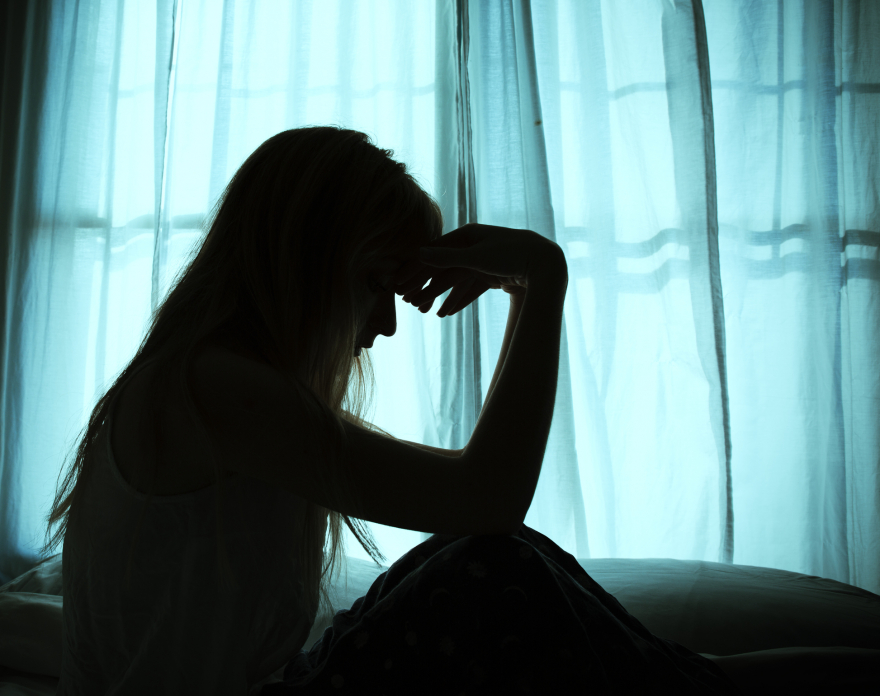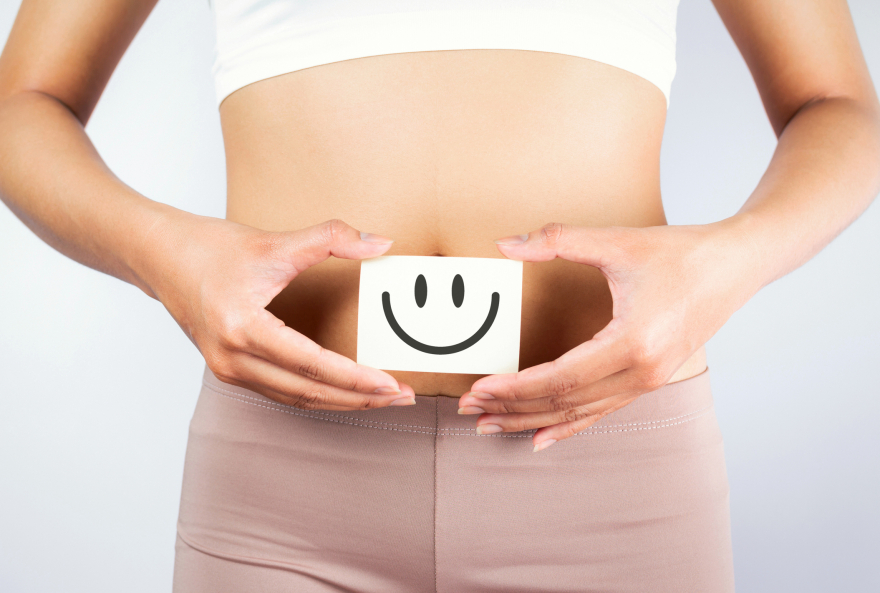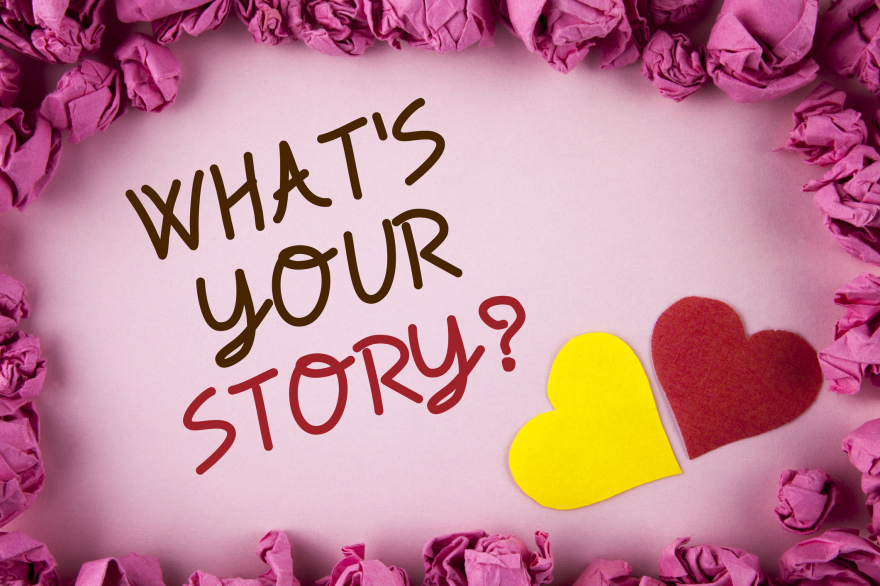Ending & Transforming Period Shame
Being excluded.
Missing activities.
Censoring yourself.
Sneaking pads or tampons in your sleeve.
Joining in the jokes because it’s easier to just “laugh it off.”
These are just a few of the ways period shame shows up in women’s lives every day.
What Is Period Shame?
Shame is defined as a feeling of embarrassment or humiliation that arises in relation to the perception of having done something dishonorable or improper.
Brene Brown describes shame as an intensely painful experience of believing we are flawed and thus unworthy of acceptance and belonging. She observed that shame is experienced as a profound sense of inadequacy, and often results in women avoiding social contact, leaving women feeling trapped, isolated, and powerless. 
Period shame is seeing menstruation as an undesirable bodily event.
While menstruation is as natural a process as metabolism or sleeping, the topic of a woman’s period is often considered taboo, carrying a social stigma that leaves women feeling anything but empowered.
A great deal of research and work has begun to demystify period shame and transform the stigma, but we have a long way to go.
In a 2017 study done by THINX, specifically on the topic of period shame,
- 58% of women have felt embarrassment from being on their period.
- 71% surveyed have hidden a pad or tampon from view on their way to the bathroom.
- 51% of men surveyed believe it’s inappropriate for women to refer to their menstrual cycle in the workplace.
The Body Shop Global conducted a Period Survey in 2019. Out of 38,000 respondents worldwide, 81% of women said they refrained from everyday activities while on their period. 1 in 5 said they feel dirty or disgusting when they have their period.
And in South Africa and India, according to the UNFPA, millions of girls drop out of school every year due to period poverty (not being able to afford feminine hygiene products) and shame.
But period shame is not an experience limited to the less fortunate. Even the most privileged fall prey to shame. This is something that spans all countries, races, cultures, and ages.
It’s time to change the conversation around women’s periods so women can be empowered, feel proud, and honor all aspects of our femininity - including our periods.

We believe that your period isn’t something to just be tolerated or treated. It’s something to be celebrated!
The Impact Of Shame.
Mental Health. People who have a propensity for feeling shame often have low self-esteem and other psychological problems. The link with depression is particularly strong.
Emotional Health. The common emotions that typically accompany shame range from embarrassment, humiliation, and regret, to anger and anxiety. You can also include sadness, depression, lonelieness, and emptiness as well. This is where shame can become a dangerous emotion. When shame results in self-attack, it is overwhelming, and can negatively taint how you view yourself.
Energetic Health. Shame is one of the lowest vibrations in the emotional spectrum. In his book, Power vs. Force, Dr. David Hawkins reflects shame as vibrating lower than guilt, which is an equally derailing energy.
For those familiar with chakras (the energy centers of your body that correspond to major organs), when these energy centers get blocked, you may experience physical or emotional symptoms related to a particular chakra or part of the body. The 2nd chakra, or sacral chakra, is the area between the base of your spine and your belly button and includes the female reproductive organs. This chakra influences sexual and creative energy and it contributes to the power of choice.
Shame is directly related to the 2nd chakra. When we experience shame, we feel as if choice has been taken away. As a woman experiences period shame, she is blocking this 2nd energy center - potentially causing a negative impact on the organs located in this area of the body and that are involved in menstrual cycles.
Physical Health. What neuroscience has revealed about shame is that the sufferer experiences a shutdown of the parasympathetic nervous system that is responsible for the body's rest response. In essence, it leaves you in a constant state of fight or flight mode, triggering stress hormones such as cortisol and adrenaline.
Over prolonged periods of time, these stress hormones cause the hormones that regulate our menstrual cycles (such as estrogen and progesterone) to shift out of balance. This can cause PMS and other negative impacts on a woman’s cycle and periods.
Social Health. Research has shown that women identify PMS symptoms as an “accepted” and common way to talk about and connect with other women about their menstrual cycles. So rather than women having open, transparent, supportive conversations, we unknowingly perpetuate this stigma by jumping on the complaining bandwagon of “whose symptoms are worse than whose.”
Are You Contributing to or Converting Period Shame?
Because this has been going on for generations, women don’t even realize they’re contributing to period shame and perpetuating the stigma.
I had a close friend recently suggest that we rename our product because she didn’t care for the word “Period.” I thanked her for sharing her feedback and said to her that by choosing a different word, I believe we would be contributing to the stigma. In order to truly transform, we need to create a new experience and association with the same traditional word: “Period.”
So how are you contributing to or converting period shame?
Do you hide products when you go to the bathroom? This is contributing to the stigma and shame around your period. You certainly don’t have to wave your tampon in the air like a flag, but you don’t have to be embarrassed by something as natural as your period.
Do you create a cutesy name for “that time of the month” like “Aunt Flow is in town” or “I’m on the rag”? Clue, a popular period tracking app, conducted a survey involving 9,000 people across the world and came up with over 5,000 euphemisms that are used to describe a woman being on her period. When people perpetuate these code phrases, however funny they may be, it’s contributing to the stigma and shame at some level.
How to Transform Period Shame
Beyond the generations of society conveying that periods are “bad” and “dirty” and should not be talked about, the root cause of period shame is lack of knowledge about the body and the menstrual cycle. Our mothers did the best they could with what they had, just as their mothers did the best they could. Maybe it wasn’t even your mother who taught you about your period. Maybe it was a father-figure. The point is that when you understand your cycle and what is typical for YOU, then you can begin to normalize the stigma so it’s not such a big deal. It then becomes just another cyclical bodily function like digesting your lunch.
The next biggest contributor to period shame? Isolation. That is why sisterhood and a community or network of women is so important. It doesn’t have to be a large community - just a few trusted family members, confidants, or colleagues are all that’s needed to demystify menstrual cycles and periods.
Brene Brown talks about how sharing our story can be a strategy to establish connection. According to Brown, the greatest challenge to overcoming shame is the way shame actually makes us less open to giving or receiving empathy. Shame is maintained because it can be very difficult for women to access empathy. Empathy helps to heal shame, and empathy comes from community, a community of people who are facing the same issues.
What is the Opposite of Shame?
When I ask this question, some of the responses include pride, courage, and dignity, among others. And while those are good, I believe the opposite of shame is love… self-love.
Through educating yourself about your menstrual cycle, your period and the topics related to it, you’re expressing self-love. Through connecting with other women to talk openly about your stories, you’re expressing self-love and holding space for another woman to do the same. The more we can love and honor and cherish ourselves, the more we can melt away the stigma of shame and step into our power.
Cultivating a Positive Period Experience.
This begins by having a better understanding of how we may be contributing to the social stigma when we may not even realize it. That change begins by one woman having the courage to speak up, talk openly, share stories, and support other women. Here are some actions you can take to help transform period shame into period love:
-
Have massive compassion for yourself and other women in your inner circles.
-
Educate yourself about your body, menstruation, hormones and menstrual cycles and discover what is “normal” for you. To learn more about what your mother never taught you about your period, read our article here.
-
Find a doctor you feel comfortable with so you can ask questions, be heard, and receive support/guidance.
-
Express body love; self love. Find those aspects of yourself that you can appreciate rather than reject. In doing so, you’ll activate your second chakra (and other chakras) to keep your energy flowing.
-
Connect with other women. It’s through intentional and trusted community that you can feel safe to ask, explore, and discover a whole new perspective about your menstrual cycles and period.
-
Integrate Perfect Period.® into your daily regime- an alternative option to minimizing and eliminating PMS and issues related to your period so you can feel more comfortable and confident in your own body. Click here to learn more about how Perfect Period can help you have easier, problem-free periods!
-
And last but not least, share stories.
In fact, we want to know your story!

We’re collecting period stories from women everywhere of all ages to transform period shame. By contributing to this collection of stories you’ll be helping other women (yourself too) feel more comfortable in their own bodies and express more self-love.
What's your first period story?
What’s your most embarrassing period story? (it happens to all of us)
What’s your most beautiful period story?
CLICK REPLY and share your period story with us (we’ll keep it confidential of course).

|